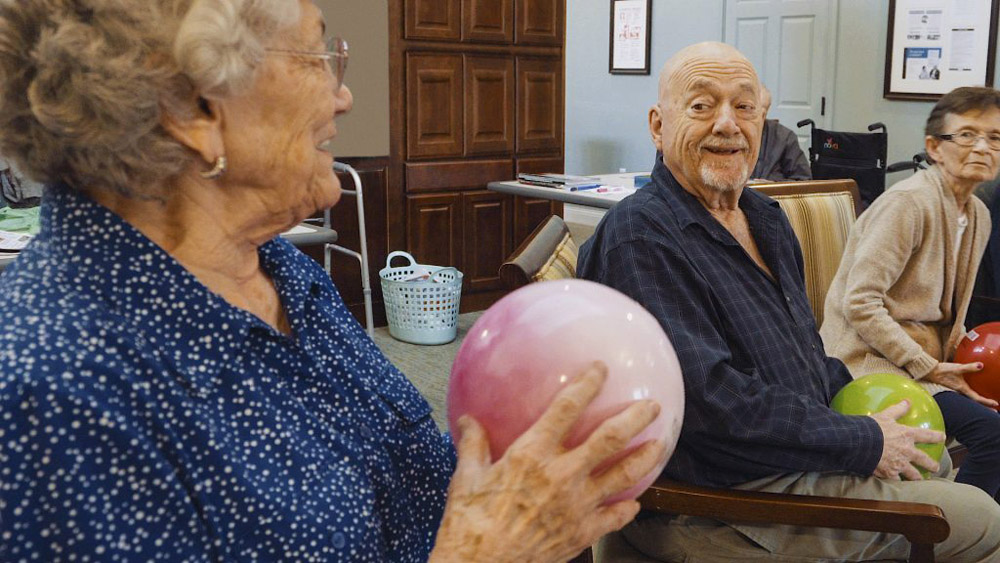Discover Compassionate Memory Care: Enhancing High Quality of Life for Loved Ones
The journey of taking care of a loved one with cognitive disabilities offers unique challenges that can exceptionally affect household characteristics and psychological health. Caring memory care facilities use a structured, helpful atmosphere made to resolve these difficulties while improving the lifestyle for locals. By concentrating on personalized care and purposeful involvement, these centers not just uplift those affected by conditions like Alzheimer's and mental deterioration however likewise give comfort for family members. As we explore the necessary elements of thoughtful memory care, it ends up being clear that understanding these alternatives can make a significant difference in the lives of all included.

Recognizing Memory Care
Recognizing memory care entails recognizing the specific assistance and services developed to aid individuals with cognitive problems, such as Alzheimer's condition and various other kinds of dementia. Memory care facilities concentrate on creating a safe and structured environment that advertises the well-being of residents while addressing their special cognitive challenges.Key parts of memory care include trained team who are educated about the complexities of mental deterioration and associated conditions. These professionals use evidence-based methods to boost cognitive function and preserve self-respect with individualized care plans. The physical atmosphere is also tailored to reduce confusion and advertise knowledge, commonly featuring protected locations to stop wandering. Memory Care Charlotte.Moreover, memory care emphasizes social interaction and significant tasks that stimulate cognitive capabilities and foster connections among citizens. This method acknowledges the value of preserving social communications to fight isolation often experienced by people with memory loss.Families play a vital function in memory care, as their involvement aids create an encouraging network that enhances the lives of locals. By comprehending the specialized nature of memory care, family members can make enlightened choices to improve the lifestyle for their loved ones dealing with cognitive problems
Secret Attributes of Compassionate Care
Caring care in memory care setups is characterized by an alternative strategy that focuses on the emotional and emotional wellness of residents. Secret attributes of this method include individualized care strategies customized to each homeowner's distinct demands, preferences, and life background. This customization cultivates a feeling of identity and belonging, which is essential for those experiencing cognitive decline.Another essential attribute is the visibility of qualified personnel that are not just knowledgeable in mental deterioration care yet likewise caring and empathetic. These caregivers participate in purposeful interactions, utilizing strategies such as validation therapy to link with residents and reduce sensations of irritation or anxiety.Additionally, caring care environments prioritize sensory excitement and restorative tasks that reverberate with residents' rate of interests. This might include art therapy, songs sessions, and memory activities, all developed to improve cognitive function and psychological connection.Furthermore, family involvement is encouraged, permitting loved ones to take part in care activities and support their member of the family's emotional requirements. Ultimately, the vital attributes of compassionate care create a setting where citizens really feel secure, valued, and recognized, considerably improving their high quality of life.
Advantages for Citizens and Households

Activities That Foster Interaction
Meaningful activities play an important role in promoting engagement among citizens in memory care setups. These activities not just promote cognitive function however also promote social interaction, psychological well-being, and a feeling of objective. Customized programs that consider residents' passions and abilities are very important for maximizing engagement and enjoyment.Creative searches, such as paint, crafting, or music treatment, urge self-expression and can stimulate positive memories. Structured exercise sessions, consisting of chair yoga or strolling groups, enhance physical health while providing opportunities for socialization. Additionally, memory therapy, which includes talking about previous experiences and significant life events, can strengthen connections between citizens and caregivers.Incorporating interactive games, puzzles, and also horticulture can even more promote cognitive involvement and foster team effort amongst citizens. Consistently set up team tasks, such as motion picture nights or themed celebrations, produce a feeling of area, permitting homeowners to construct friendships and share experiences.Ultimately, the execution of diverse tasks customized to private choices is necessary in memory care. By advertising interaction through significant programs, centers can considerably enhance the lifestyle for citizens, ensuring they really feel valued and connected within their community.
Selecting the Right Memory Care Center
Selecting a memory care center includes mindful factor to consider of numerous factors that impact the wellness of residents. Begin by evaluating the center's total setting, making certain it is risk-free, welcoming, and made to lower confusion. Try to find rooms that encourage social communication while giving personal privacy for personal reflection.Next, examine the certifications and training of the personnel. Caring for people with memory disabilities needs specialized knowledge. Confirm that personnel get continuous training in dementia care and use caring communication techniques.Additionally, consider the series of services used, such as personalized care plans, restorative activities, and assistance for relative. A center that stresses holistic care can significantly enhance the lifestyle for residents.Visit prospective centers to observe interactions between staff and residents, and inquire about their strategy to engaging those with memory obstacles. Examine evaluations and look for recommendations from health care experts or local assistance groups.Lastly, take into consideration the facility's location and accessibility for household visits, as normal contact can boost locals' psychological health. By taking these variables right into account, you can make a well-informed choice that ideal sustains your loved one's requirements.
Frequently Asked Questions
What Credentials Do Memory Care Staff Commonly Possess?
Memory care personnel typically hold certifications that consist of specialized training in mental deterioration and Alzheimer's care, in addition to accreditations in emergency treatment and mouth-to-mouth resuscitation. Numerous have backgrounds in nursing or community service, giving them with necessary abilities in individual assessment and emotional support. Alzheimer’s Care. Furthermore, ongoing education and learning in behavior administration strategies and interaction techniques prevails, ensuring staff continue to be adept at resolving the one-of-a-kind demands of people with cognitive impairments while promoting a helpful atmosphere
Exactly How Can Family Members Participate in Their Loved One's Care?

What Is the Expense Variety for Memory Care Solutions?
The price array for memory care services can differ substantially based on variables such as location, center features, and degree of care required. Generally, households might expect to pay between $4,000 and $8,000 per month. Extra services, specialized programs, and exclusive lodgings can further affect rates. Alzheimer’s Care. It is advisable for households to completely research and go to facilities to recognize what is included in the fees and discover financial aid alternatives offered
Exist Specific Dietary Options Available for Residents?
Yes, numerous memory care facilities offer tailored nutritional options to fulfill the particular nutritional demands of citizens. These choices commonly consider various nutritional restrictions, such as diabetes, heart health, or allergic reactions. Facilities often utilize qualified dietitians to produce meal plans that advertise general wellness while considering private choices. In addition, relative are normally urged to take part in discussions concerning nutritional options to guarantee that their loved ones' tastes and demands are respected.
How Are Emergency Situations Handled in Memory Care Facilities?
Emergencies in memory care centers are taken care of with established methods developed to assure resident safety and security and swift action. Team are learnt emergency situation treatments, including first help and evacuation plans - Alzheimer’s Care Charlotte. Facilities conduct routine drills to plan for various scenarios, such as medical emergency situations, fires, or all-natural catastrophes. Furthermore, communication systems are in area to alert personnel and emergency services promptly, ensuring that locals receive prompt attention and care during crucial situations